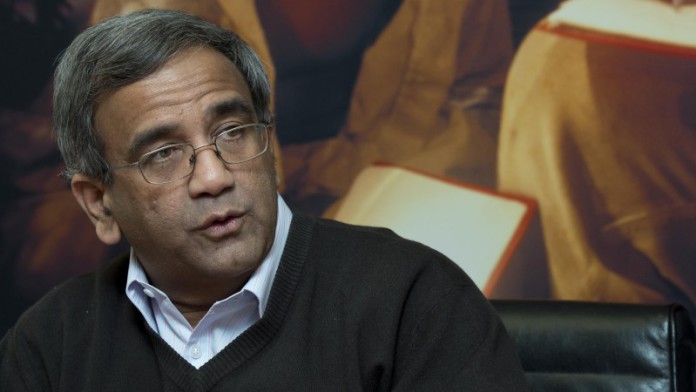
MINING firms operating in developing economies ought to brace themselves for increased taxation as countries tackle the social and economic impact of the Covid-19 pandemic.
“The probability is unfortunately high and the longer this pandemic prevails and the government can’t get back on its feet – whether there’s a recession or not – I think the probability of tax hikes is going to be real,” said Srinivasan Venkatakrishnan (Venkat), former CEO of mining groups Vedanta and AngloGold Ashanti.
“I think governments would look to balance their books. Some will have the ability to print money and get over the issue while others will not have the luxury.
“There will be a debate of how much and where, and when the tax increases will fall. By nature the mining industry is capital intensive and it is effectively captured to the countries’ character, so it will be a natural target here.
“And given that we are highly intrusive as an industry, it actually creates room for the government to put tough taxes in,” he said.
Venkat was speaking at the Joburg Indaba, a conference.
Increased or unanticipated taxes could take multiple forms such as royalties, duties and possible tax audits. “I would not rule out aspects of fiscal stability agreements being challenged,” said Venkat.
“Another common form [of taxation] in certain jurisdictions is that amounts that are rightfully due to mining companies are being held back. This is typically in the form of VAT and tax refunds that depreciate over time and squeezes the working capital that a company needs to invest into the business,” he said.
AngloGold Ashanti and Barrick Gold are waiting on the Democratic Republic of Congo to refund VAT. For AngloGold, this is an estimated $500m in unrealised financial benefits. Barrick Gold CEO, Mark Bristow, said the refund of the outstanding cash was a formality, although it has yet to materialise. The two firms operate the Kibali joint venture.
“Once one country starts it, it tends to have a domino effect to the other countries,” said Venkat. “In a nutshell, I would hope not, but I would not be surprised to see a paradigm shift in jurisdictional risk post-Covid.”
The risk may be restricted to developing economies, however.
“If you look at the developed economies it is a lot more stable. The experience from the US is they actually passed the CARES Act which is actually tax incentives for companies during this period,” said Charl Keyter, CFO of Sibanye-Stillwater.
The act, an acronym for Coronavirus Aid, Relief and Economic Security Act, is legislation formalising $2.2 trillion in economic stimulus. The CARES Act was passed by the Trump administration in March.
Keyter acknowledged that developed economies have been known to seize on its resources sector during the up-cycle. “I always say: who was the first to jump on the super profits? It was the Australians. We have to be careful but I do think the risk is with developing economies,” he said.
Venkat said one way mining firms could mitigate the effects of increased taxes is for the adoption of transparency “at every level” and to treat the host countries’ communities fairly. “The community is your best ambassador,” he said.











